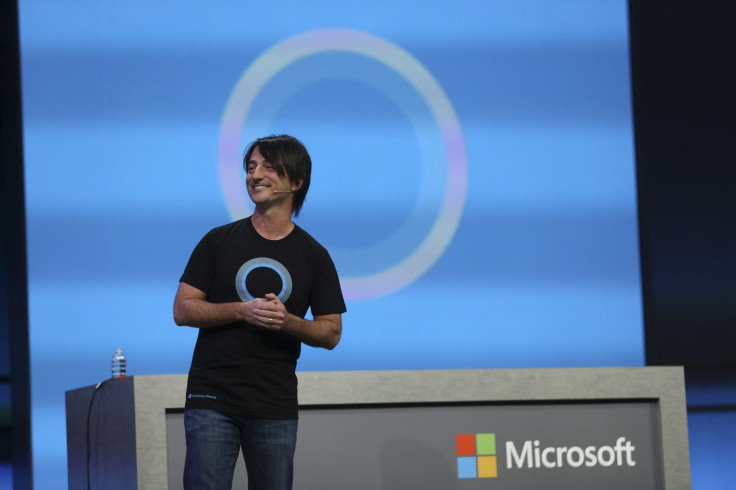Harman Kardon Cortana Speaker Certified: Will It Compete With Amazon Echo And Google Home?

After smartwatches and VR headsets, voice assistant-based speakers are a new category of smart devices that technology companies are investing in. The Google Assistant-based Home speaker and Amazon Alexa-based Echo speaker are already selling in the market and it seems Microsoft might be the newest player to join their ranks.
Harman Kardon, a company specializing in speakers, has become the first to get Microsoft's Cortana voice assistant since the Cortana SDK was opened up to developers in December. Harman had released a 30-second teaser in December 2016 showcasing a smart speaker with an LED-based display at the top. On Tuesday, the speaker got certified by Wi-Fi Alliance, an organization that monitors Wi-Fi operability. The product description mentioned in the certification revealed that it's powered by Cortana and runs on Linux version 3.8.13.
Expected usage of the speaker includes letting the user know about the weather, allowing the user to set reminders or even dictate a word document — something that could give it an edge over all other such speakers in the market.
There has been no date of availability or expected pricing for the device yet, but since certifications have begun, the device could be expected to release soon, or probably be showcased at the Mobile World Congress event in Barcelona later this month.
Voice assistants are expected to become commonplace in 2017, since their functionality is not limited to just smartphones, and they are being used in devices such as smart speakers. The trend started with Amazon’s Alexa assistant, which is now being used across a variety of devices including the company’s own Echo and Echo Dot speakers. It was followed by the launch of Google Home speaker in October 2016.
Amazon's and Google’s voice-activated smart speakers will offer more than just regular speaker functions such as playing music. Amazon, for example, recently added an Outlook.com functionality and even lets users order meals from restaurants, while Google Home lets users make purchases and allows them to get information about the weather, nearby restaurants and events. Both companies are also considering allowing users make calls through their devices.
© Copyright IBTimes 2024. All rights reserved.











